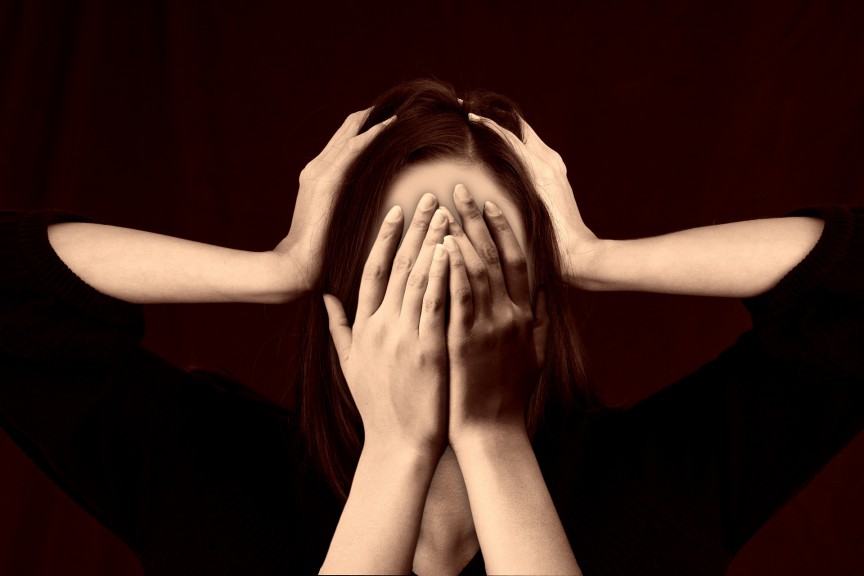I grew up in Brazil and the US with people interchangeably praising me for my talents, brains, congeniality or looks and telling me I was ugly, fat, unfeminine, crazy or evil. People I really liked and trusted could quickly morph into bullies, and back into “friendliness.” It was quite confusing, to say the least.
No matter what I did “right,” I was always bound to say or do or be something “wrong,” in equal parts. I stood out in my social environments and couldn’t hide my emotions, which gave my bullies more fuel for ridiculing me. They were most likely in a spiral of envy and irrational anger and themselves broken – lashing out at scapegoats for their inner misery – but I couldn’t see that at the time.

Although I stubbornly couldn’t bring myself to give up on trying to be me (this very act being intimidating to people), I began to see rejection and drama as the norm. Insecurity and anxiety would follow me everywhere I went, no matter how far I physically removed myself from the main sources of the psychological abuse, or tried to protect myself from scrutiny. Anything good was inevitably bound to come to an end.
Besides making fun of my appearance and the way I walked and talked, and labeling me awkward and incapable of independent action, I remember the voices of bullies decrying me as a “lesbian” for showing affection towards a female classmate in primary school, and later condemning my dating choices when these were not “upstanding” white Christian males. Because I was supposed to make myself as white and Christian and heterosexual as possible – “for my own good,” of course.
Their echoing berating voices had devastating consequences for my intimate relationships, including with myself, which long remained toxic and still haunt me. The mix of complicated grief and anger had subsided, but current affairs have brought it back, and I’m struggling to channel it productively.
It took the election cycles that put hate spewers Donald Trump and Jair Bolsonaro in power for me to add it all up.
Some of my most memorable bullies – including women in a lifelong battle against the scale amid the vicious patriarchy – have loudly supported far-right candidates in the US or Brazil. They have gone on social media to sow fear against Syrian refugees, defend guns, spread lies against the opposition, discredit climate activists and concerned political leaders, and/or promote conspiracy theories.
They don’t realize they sound quite similar to other right-wing reactionaries all over the world and seem to believe, ironically while being played, that they’re actually shaking up the system. To many of them, it’s the communists who have taken over the world, though. You can hear that clearly in far-right President Bolsonaro’s recent UN speech.
While in the past bullies only had a small audience in their immediate circle to torment or try to influence with “their” views, the Internet has given them potentially masses, should the posts they share go viral. They’re today’s trolls. And they like to elect other trolls to represent them.
But the proletarian bullies resent that, while they hide behind their online personas and are individually indistinct, activists put themselves out there and get attention on the world stage, including speaking at the UN and fist-bumping with world leaders.
Psychological research has demonstrated a total or at least partial link between bullying and narcissistic personality traits. It’s a chronic need for external validation, at all costs, which can include victimization, scapegoating and abusing others, and even getting involved in seedy or illegal activities (hence Trump).
A familiar sick feeling overcame me when I read that bullies were attacking 16-year-old Swedish climate activist Greta Thunberg by mocking her looks and discrediting her based on her Aspergers, young age and conspiracy theories involving sponsorship by billionaire George Soros and even ISIS. They have insulted her ability to act as an independent agent, and her very fiber as a human being. Unsurprisingly, it got worse after her rousing UN speech earlier this month, which stood in stark contrast to Bolsonaro’s. The Brazilian president’s minions – fittingly known as “Bolsominions” – also became known internationally for mocking French President Emmanuel Macron’s wife based on her age and appearance, when Macron spoke out regarding the Amazon burning at alarming rates.
Meanwhile, having sailed across the Atlantic, Thunberg shows no signs of backing down – suggesting she knows the bullies use ignorant mockery for lack of arguments; and I hope she can continue to withstand the relentless charge of the lemmings, and can come out even stronger and more determined.
When haters go after your looks and differences, it means they have nowhere left to go. And then you know you’re winning!
I have Aspergers and that means I’m sometimes a bit different from the norm. And – given the right circumstances- being different is a superpower.#aspiepower pic.twitter.com/A71qVBhWUU— Greta Thunberg (@GretaThunberg) August 31, 2019
As Washington Post columnist Monica Hesse recently wrote, Thunberg is not particularly trying to be liked. She’s bothering people by forcing them to feel shame, in all the freedom of her youth and the massive popular movement she has sparked worldwide: “We live in an era that has become impervious to shame. An era defined by a president who views it as a weakness. Shame has become an antiquated emotion and a useless one. It’s advantageous, we’ve learned, to respond to charges of indecency with more indecency: attacks, misdirection, faux victimhood.”
Deep inside, the bullies feel intense shame which they take out on the rest of us – especially when we stand out somehow – and which they are desperate to hide.
Their self-hatred and resentment manifest at the micro and macro levels, taking the form of all sorts of discrimination and abuse of power for personal gain. I think we can best defend ourselves by first becoming aware and giving ourselves the room – even if this means cutting out toxic people close to us – to explore and establish our own identities, and build a solid foundation of values, compassion and self-worth we are not ashamed of carrying and fighting for. This higher regard for our authentic selves is bound to translate into finding meaning in something bigger than our egos, into a higher regard for all life on the planet, into being part of an actual change in paradigm.
Update, 10:45 AM: My loyal readers have pointed out that this article seems incomplete. And they’re right – this topic is still a work in progress in my mind and something I feel guilty talking about, due to my conditioning to blame myself. I will further elaborate on dealing with this psychological legacy, as well as current attacks, in the near future. I hope that, with these imperfect offerings from my imperfect self, I can help others struggling with similar issues.









